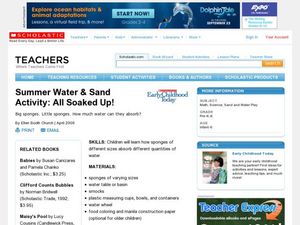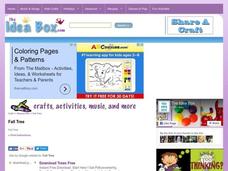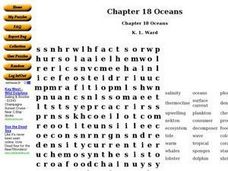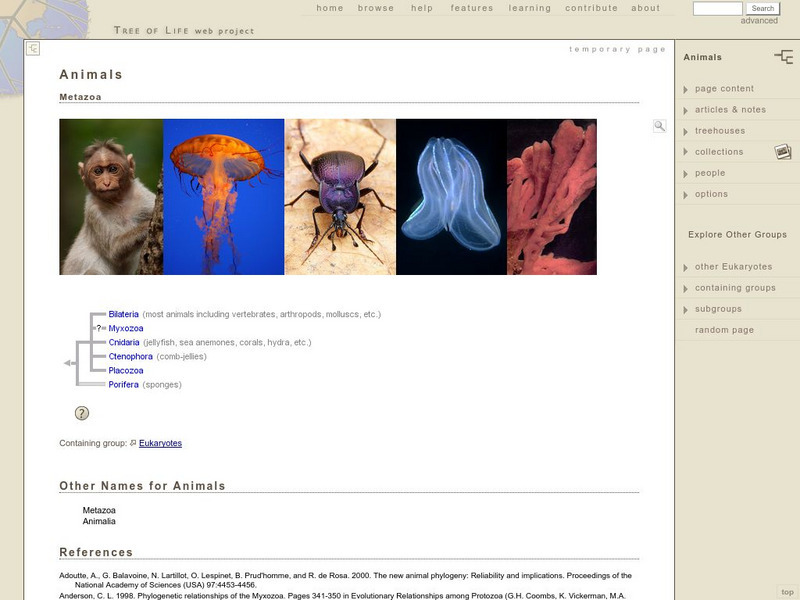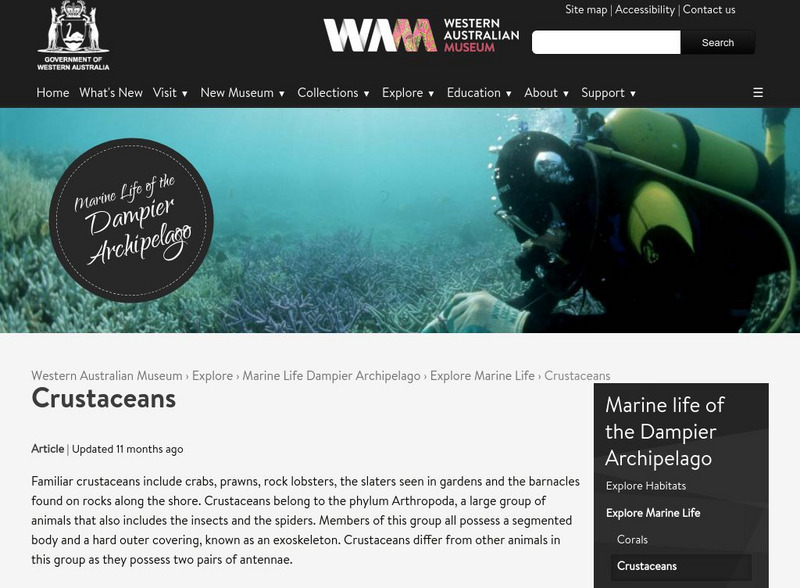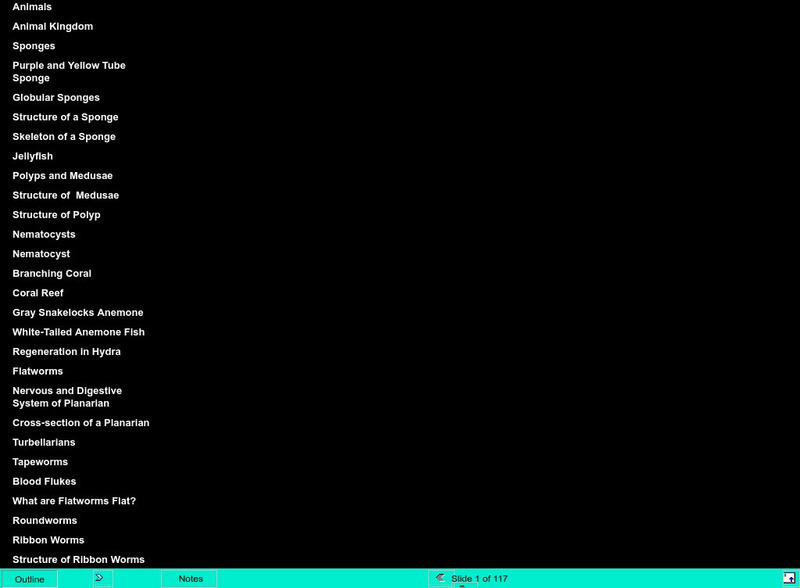Biology Junction
Phylum Porifera – The Sponges
They may not look like it, but sponges are living, breathing creatures! A PowerPoint presentation explains the important characteristics of the invertebrate Phylum Porifera, or more commonly known as the sponges. From their body...
Biology Junction
Invertebrates
How many different invertebrates can you name? A thorough presentation describes the eight different Phyla of invertebrates. Each slide gives a quick overview of the important physical characteristics of each of the Phyla.
NOAA
Importance of Deep-Sea Ecosystems – Chemists with No Backbones
Marine invertebrates offer us many new options for developing pharmaceutical drugs, such as w-conotoxin MVIIA, which is extracted from the cone snail and is a potent painkiller. The lesson encourages scholars to research various types of...
NOAA
Invertebrates
Crabs and lobsters ... yum! The 18th installment of a 23-part NOAA Enrichment in Marine sciences and Oceanography (NEMO) program focuses on invertebrate marine life. After the lecture slideshow, learners conduct an activity to sample...
Curated OER
Kingdom Animalia: Sponges, Cnidarians, Flatworms, and Roundworms
As you work through the biological hierarchy, visit several phyla within the animal kingdom. This PowerPoint introduces viewers to characteristics and reproduction in sponges, cnidarian, flatworms, and roundworms. Make sure to add the...
Curated OER
Sponges, Cnidarians and Worms Concept Map
In this sponges, cnidarians and worms worksheet, students complete a concept map on simple invertebrates. They fill in 11 blanks with the correct answers from the list.
Biology Junction
Cnidarians
In this cnidarian worksheet, learners study the biology of the different species of cnidarians and complete a series of questions.
Curated OER
The Sponges
In this sponge worksheet, students read about the different parts of a sponge and answer 20 short answer questions that follow. They color and label different sponge drawing.
Curated OER
Summer Water & Sand Activity: All Soaked Up!
In this lesson, Summer Water & Sand Activity: All Soaked Up!, young scholars experiment with sponges and water. Students analyze how sponges absorb water. Young scholars learn a song to sing during the lesson to help them understand...
Curated OER
Fall Tree
Students make a tree. In this art lesson, students draw and color a tree trunk on the bottom third of a piece of paper and sponge paint the top half using red, orange and brown paint one at a time in a circular pattern.
Curated OER
Internet Invertebrates Scavenger Hunt
In this invertebrates scavenger hunt learning exercise, students research on the Internet 10 various types of invertebrates. They read each question first to determine what they need to look for on the Internet. Then, students respond to...
Curated OER
Hairy Shamrocks
Students create shamrocks out of sponges. In this art lesson, students plant grass seeds in the sponges so that when the grass grows it looks like hair.
Curated OER
Sponges - A Coloring Worksheet
In this sponges worksheet, students read the information about sponges. Students answer the provided questions about the reading passage. Students color the illustration at the bottom of the page.
Curated OER
Chapter 18 Oceans
In this earth science worksheet, learners identify and locate various vocabulary terms pertaining to the ocean and living things found in the ocean. There are 27 ocean terms located in the word search.
Curated OER
Invertebrate Word Search
For this biology worksheet, students identify and locate vocabulary terms related to various types of invertebrates. There are 21 biology terms located in the word search.
Curated OER
The Mystery of the Sponge
First graders observe while water is absorbed into a sponge. They experiment by putting a sponge on yardstick and watch while water dries and the weight changes.
University of California
Ucmp: Porifera
Detailed site, lots of pictures, and easy to understand descriptions of the phylum known as Porifera. This one is a winner!
Tree of Life Project
The Tree of Life Web Project: Animals
Extensive site that contains much information about the various animal phyla. Each phyla gives photos, common examples, scientific names and references. Collection of 1630 websites about bio-diversity.
Other
Native Planet: Dangerous Sea Life
Learn about venomous fish and other animals with the ability to inject venom, such as jellyfish and other venomous invertebrates.
US Fish and Wildlife Service
United States Coral Reef Task Force
The US Coral Reef Task Force was created to protect and sustain US coral reefs. This website provides general coral reef information as well as updates from the most recent task force meetings.
PBS
Pbs: The Shape of Life
Companion site for the 8-part PBS series, "The Shape of Life." Each section focuses on a different phylum, from porifera through chordata. This site is highly informative, with beautiful photography.
Other
Western Australian Museum: Sponges: Marine Life of the Dampier Archipelago
Did you know that sponges are one of the simplest animals that exist? Learn about these multi-cellular animals and their importance to the marine environment.
University of Southern California
Structure of Matter: Animals
A slide show that demonstrates the development of physical structure in the animal world, moving from sponges through mammals.
University of California
Ucmp: Life History and Ecology
Learn how sponges eat, grow, reproduce on this colorful page.










